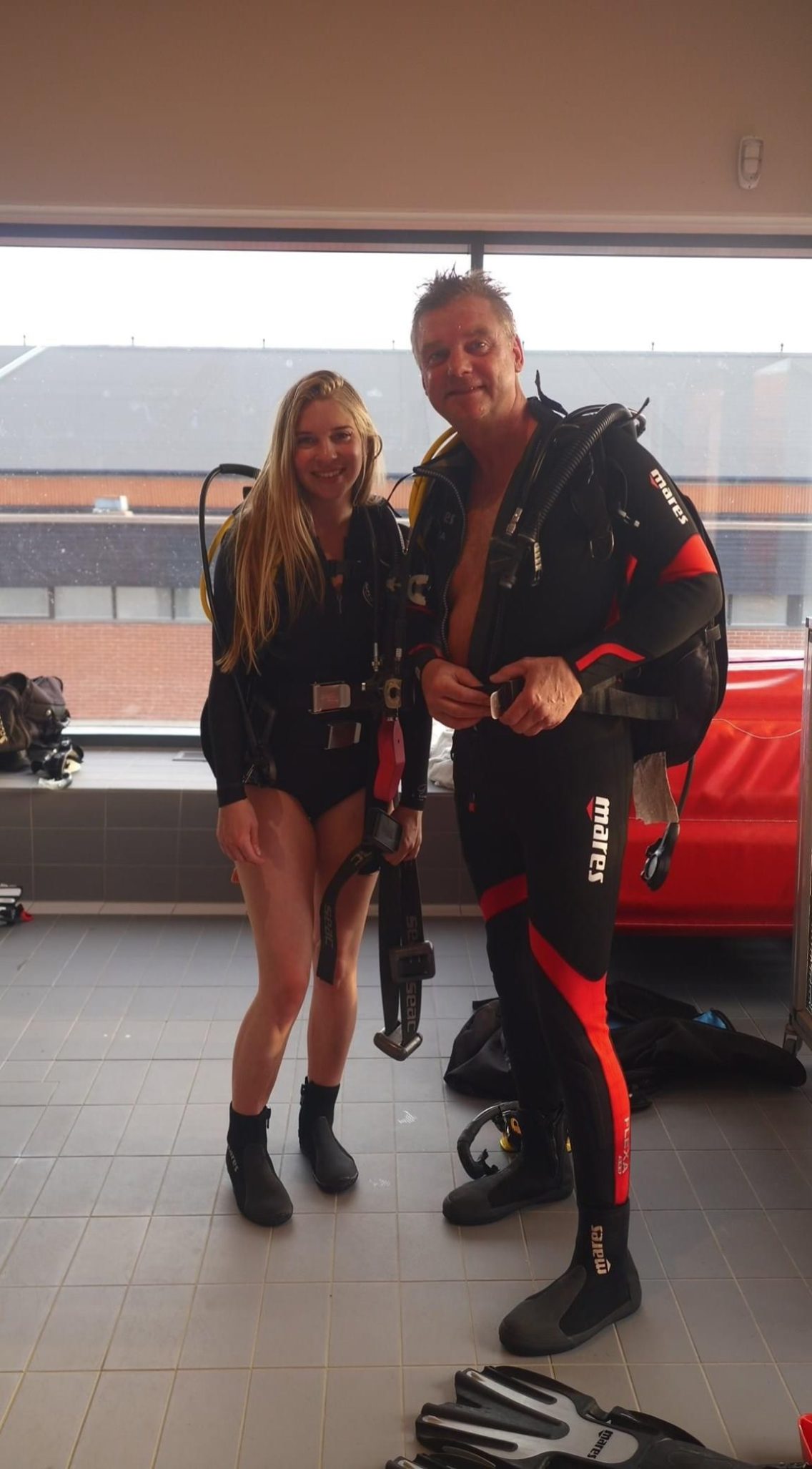Full Guide on How to become a SSI Open Water Diver


I was feeling adventurous and decided it was time to take the plunge – literally – and get open water scuba certified! But with all the questions swirling in my head, it was hard to know where to start. How do I get certified? Where do I go? How much does it cost? And what if I freak out underwater? But I refused to let my doubts hold me back from exploring the fascinating world beneath the waves.
So, if you’re curious about diving but don’t know where to begin, here’s everything you need to know about getting scuba certified!

Should I Get Certified with SSI or Padi?
If you’re interested in scuba diving, let me tell you, there are so many diving companies to choose from! It can be overwhelming, I know. But don’t worry, I’m here to help. Two of the top agencies in the world are PADI (Professional Association of Diving Instructors) and SSI (Scuba Schools International). Personally, I recommend SSI since I got my license from them.
In this post, I’ll be covering Dive SSI Open Water Diver Certification, which is the first certification you need to get. But, if you’re keen, you can continue your education to get your Advanced Diver, Rescue Diver, or even Divemaster certification.
I started with Open Water Certification and have since completed my Drysuit and Nitrox Enriched Air Course. Let’s dive in!

Get Scuba Certified with SSI
First things first. If you’re thinking about getting your scuba diving certification, one important thing to keep in mind is that you need to know how to swim. It’s not just about being able to float or doggy paddle, you need to be comfortable in the water. The certification process will require you to swim 200 meters, which is about eight laps in a standard pool. Don’t worry about speed, there’s no time requirement, but you can’t stop. You’ll also have to tread water for ten minutes, so make sure you’re comfortable with that too. With a little bit of practice, you’ll be ready to take the plunge and start your scuba diving journey!
Next, select a dive shop. Choosing where to get your scuba certification can be a tough call. Some people prefer to get their certification while on vacation in tropical destinations, while others choose to get it closer to home where they feel more comfortable. The choice is yours! When you’ve found a dive shop that you like, you’ll start the course with diving theory. There are five sections you need to learn, with questions at the end of each section. Don’t worry, your instructor will guide you through this, so you don’t have to stress about it. With your instructor’s help, you’ll be ready to hit the water in no time!
(Note: SSI does offer an online course if you’d prefer to do the coursework at home.)
After you’re familiar with those five sections, the swimming begins in a pool or pool-like environment. Once you’ve completed the diving knowledge section, it’s time to get hands-on with scuba skills! This is where you’ll practice all the essential skills necessary for open water training, like putting on your gear, sharing air, buoyancy control, safety procedures, and taking your mask off. These are the basics, and your instructor will be there to guide you every step of the way. It may seem overwhelming at first, but you’ll be surprised at how quickly you’ll get the hang of it!
Then the open water dives begin! You’ll get to put all your skills to the test during the four open water dives that you’ll complete, where you’ll demonstrate everything you learned in the pool. It usually takes about two days to complete these dives. This is where the real fun begins, as you get to explore the underwater world and see all sorts of incredible marine life!
Once you’ve completed those dives, the last step is to take an exam…and pass! The open water test might sound intimidating, but it’s just like taking a test for your driver’s permit. It includes practical questions about skills you learned during the course. So, if you’ve paid attention in class and practiced in the pool, you’ll have no problem passing the test. Don’t let it stress you out!

How Long Does the SSI Open Water Certification Process Take?
The certification process typically takes around three to four days, but if you opt for the online course and learn diving knowledge at home, you can speed things up. As for the four open water dives, they’re usually done over two days. Here’s a typical certification schedule: Day One involves coursework, quizzes, and instructional videos. Day Two begins with certification testing in the morning, followed by practice in the pool or a pool-like environment in the afternoon. On Day Three, you’ll do an open water dive in the morning, and another in the afternoon. Day Four follows a similar schedule with two more open water dives and the final exam. If you’re getting certified closer to home, don’t worry! Some dive shops offer training in the evenings or on weekends to accommodate busy schedules.
What Gear Will I Need for Open Water Scuba Diving?
Your dive center has got your back when it comes to gear. You can check with your dive shop to see what gear is included in your course package and what gear is available for rent. The shop will even help you find the best-fitting mask, wetsuit, snorkels, and fins. You’ll also be using a regulator, buoyancy control device (BCD), dive computer, scuba tank, wetsuit, and weight system (sometimes gloves and boots are required—particularly for colder and rockier environments).
After getting Open Water Certified, some people choose to invest in their own scuba gear, but it’s entirely up to you. I personally invested in my own mask, wetsuit, drysuit, BCD, regulator, fins, dive computer, and the rest of the gear when it comes to clothing. One piece of gear to consider investing in is your own regulator—the piece that fits into your mouth and connects to your oxygen tank. If it’s not the right fit, it can be a bit uncomfortable.
Check out my guide on What to Pack for a Diving Trip for my complete setup!

How Much Does an SSI Open Water Certification Cost?
I know cost is a huge factor when deciding to get certified, but don’t worry, it won’t break the bank. Depending on your location, you can expect to pay around €300 to €600. However, it’s always good to ask your dive center if there are any additional fees, like rental gear or course materials, that might not be included in the price. At the end of the day, the price is a small investment for a lifetime of incredible diving experiences!
Does My Open Water Certification Ever Expire?
Good news, my friend! Your Open Water Diver certification doesn’t expire – it’s valid for life. But, like any other skill, it’s important to keep it fresh in your mind. PADI offers refresher courses for divers who want to revisit their training. As a general guideline, it’s recommended to brush up your diving skills if you haven’t taken a dive in over a year. So, let’s get back in the water and explore the depths of the ocean!

What if I Feel Claustrophobic When Scuba Diving?
I totally get it – it’s a common concern!
But don’t worry, your dive instructor will be with you every step of the way. They’ll guide you through various scenarios and teach you all the necessary skills until you’re comfortable underwater.
In fact, many divers find the feeling of weightlessness underwater to be incredibly freeing! Learning to scuba dive can also help you control your breathing, which can be a huge help in managing feelings of anxiety and claustrophobia.
So don’t let your fears hold you back from experiencing the incredible world underwater!
Where Can I Scuba Dive?
Once you get your scuba diving certification, the world is your oyster! I’ve been lucky enough to dive in some incredible places like French Polynesia and the Maldives. But the list doesn’t stop there! There are so many amazing dive spots around the world. Trust me, the possibilities are endless!

What to Look for in a SSI Dive Center
If you’re considering where to get your scuba diving certification, there are a few key things to keep in mind:
First off, safety always comes first. Make sure the dive center you choose uses well-maintained equipment that’s in good working order. You want to be sure everything is carefully looked after, so you can focus on having a good time.
Next, you want to ensure the dives are well-organized and planned out, to make the most of your time in the water. After all, getting your certification should be an unforgettable experience!
Finally, friendly and knowledgeable staff can make all the difference. You want to feel comfortable and supported throughout the PADI or SSI process, so look for a team that’s warm, helpful, and dedicated to helping you achieve your diving goals.
Keep these factors in mind as you search for a dive center, and you’re sure to find the right fit for your needs. Happy diving!

Still have questions about getting SSI Open Water Diver certified? Let me know in the comments below. I’m an open book!
Share









1 Comment